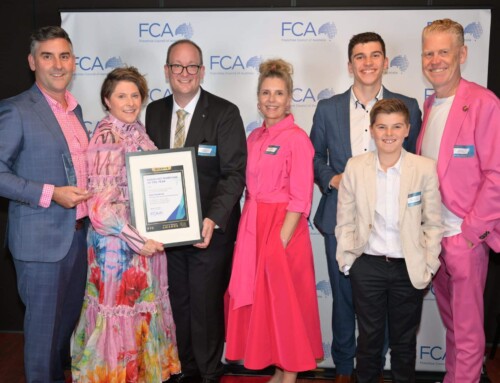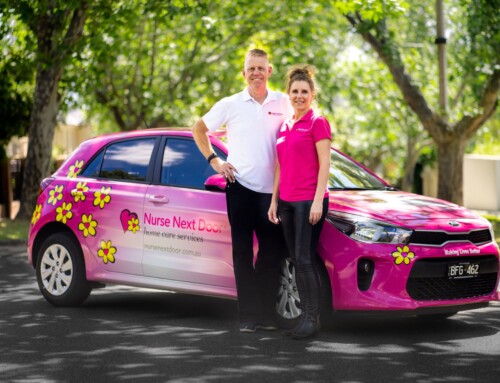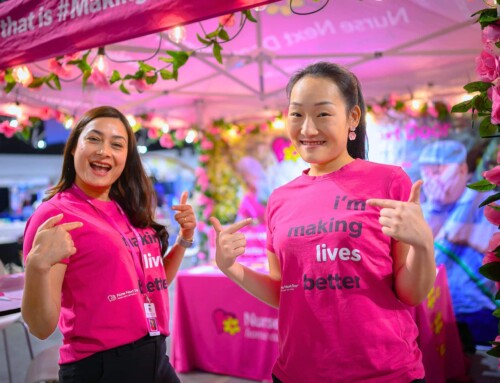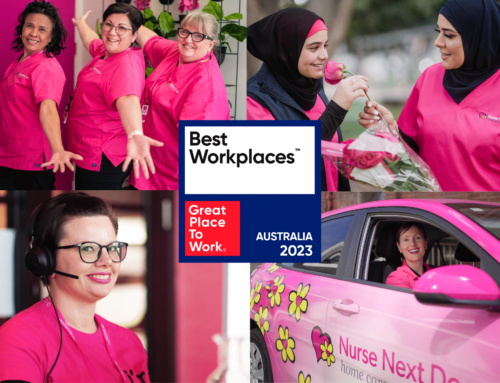The Australian home care industry is growing rapidly due to an ageing population. There are two aspects to this demographic trend : first, the structure of Australia’s population is changing, driven largely by our sizeable Baby Boomer cohort who are estimated to be 5.5 million strong – our largest demographic group. Born between the years of 1946-1965, the oldest Baby Boomer is yet to turn 80! It goes without saying this massive demographic is a force to be reckoned with.
Secondly, the longevity of Australia’s elderly is increasing due to advances in medicine and technology. The Intergenerational Report suggests that by 2055 Australians aged 60 or 70 can expect to live four or five years longer than 60 or 70 year olds today.
Combined, these two demographic trends are driving strong demand for aged care services, specifically home care, as this generation of older Australians overwhelmingly prefer to age at home. (Productivity Commission, 2011 Caring for older Australians)

Great Opportunity for Home Care Franchise Ownership
In fact almost 90% of all older people want to age at home. Yet home care is a relatively new phenomenon with previous generations assuming a nursing home was their only option. According to FranchiseDirect, over the past five years, home care franchises in North America grew at an average rate of 9.1% annually. Research firm, IBISWorld states that there are now more than 60 franchise brands, combining for over 6,800 business locations and employment of over 350,000 and expects growth to keep accelerating. Similarly in Australia, franchise systems are playing a significant role in keeping pace with the growing demand from people wanting to remain living independently in their own home for as long as they chose.
The ageing population coupled with medical professionals growing acceptance of home care, medical advancements, longevity of life and the reality that older individuals are more susceptible to a range of age-related ailments and need more assistance with everyday activities and personal care have all contributed to significant growth of the home care sector.
The large vacuum for home care businesses is beginning to be filled by franchise companies. Now is the time right time to build a home care franchise business with heart with Nurse Next Door.
Trying to Meet Growing Demand For Home Care
Even with substantial growth in the last decade, the home care industry is still trying to catch up to an ever-growing demand that will last for at least the next generation, if not beyond. It’s one of the main reasons why we believe Nurse Next Door is uniquely positioned for long-term, year-over-year growth that’s unparalleled in the franchise industry.
Consider these numbers:
-
Baby Boomers make up the largest generation in Australia
-
It is projected that in 2025 for the first time, Australia will have more people 65+ than children under 14
-
The number of Australians aged 70 and over is projected to increase from 2.7M in 2019 to 4.7M in 2039 and the number of Australians aged 85 and over will double from 500,000 to 1M people in the same time frame.
Even with substantial growth in the last decade, home healthcare businesses are still trying to catch up to an ever-growing demand that will last for at least the next generation, if not beyond. It’s one of the main reasons why we believe Nurse Next Door is uniquely positioned for long-term, year-over-year growth that’s unparalleled in the franchise industry.
Why Nurse Next Door Home Care Services Is Growing in Australia
Nurse Next Door’s core values and philosophy of care set it apart from any home care company — that’s one big advantage. We also resonate with different markets. We’ve done exceptionally well in Canada even with publicly funded health care; given a choice between paying for personalised care versus impersonal, by-the-numbers treatment, Canadians are still choosing Nurse Next Door in rising numbers. It’s why we have over 200 franchises across North America and why Nurse Next Door is now growing globally.
Since expanding into the United States, Nurse Next Door has become one of the fastest-growing home care systems and people are taking notice. We continue to increase our brand awareness across North America. In the United States, since customers pay one way or another, it’s a matter of which they’d prefer: an exorbitantly priced, overextended, possibly sub-standard nursing home where costs will undoubtedly rise; or affordable, attentive care tailored to the individual and administered in the home, where the client wants to be. It’s no choice at all.
Australia is Nurse Next Door’s first global location outside North America and, whilst there are differences between our markets, they are more alike than they are different. Consequently Nurse Next Door Australia is well placed to be able to match the incredible success the system has proven to be in Canada and the USA one of the toughest markets in the world.
Trends in Home Care
Nurse Next Door is an industry thought leader. We’re looking constantly to the future of home care and the forces that will shape our business and our society over the next decade and beyond. We already offer services that meet the trends we see dominating the field for years to come, including:
❤ Caregiver matching.
This is something we do with great results. In line with our core value of admiring people, we recognise that each individual is unique, and that applies to both clients and caregivers. We carefully assess not only clients’ medical needs but their likes, pet peeves, hobbies, tastes, and try to match a caregiver’s skills to the client’s preferences. Nurse Next Door takes the time to hire caregivers with the right mix of skills.
❤ Pre-medical emergency care earlier in life.
Just because a client doesn’t have an immediate medical need, doesn’t mean he or she doesn’t require care that addresses emotional needs.
Did you know that up to 15 percent of older people suffer from depression? What happens when you get depressed and lonely, and your friends and family are gone? You stay in your house. You stop preparing healthy meals. You lose strength in your legs and hips, and you fall. Household falls send more seniors to the hospital than any other cause, and Nurse Next Door helps clients adopt more active lifestyles that can keep people healthier for longer.
❤ The shift in popular perception of seniors.
It’s Betty White’s world; we just live in it. Even over 90, the actress and comedienne’s popularity blossomed. In 2010, people started a Facebook campaign to have her host “Saturday Night Live” — and it worked! On May 8, 2010, White, at 88, became the oldest person to host the show in its 35-year history, and the episode drew the highest ratings for “SNL” in more than a year.
Point is, nowadays, older Australians are — dare we say it — cool, an attitude we’ve always held at Nurse Next Door. And with married couples waiting until later and later in life to have children (if they have children at all) and an explosion in the number of seniors living ever longer, care for parents seems poised to take the place of raising children for successful adults in their 30s and 40s. “Women my age used to share kids’ stories,” says Judy Brooks, daughter of a Nurse Next Door client, “now we’re talking about parent care.”
Home care business has resisted big changes over generations. But it’s in the midst of some major disruption, and the companies that will thrive in the new world are those that embrace change. At Nurse Next Door, we pride ourselves on not just staying ahead of trends, but setting them.
With a core purpose of Making Lives Better, Nurse Next Door, under the leadership of Melbourne based Master Franchisors Matt Fitton and Amber Biesse, provides in-home aged care and disability support services built on our philosophy of Happier Ageing® focusing on possibility rather than disability.







